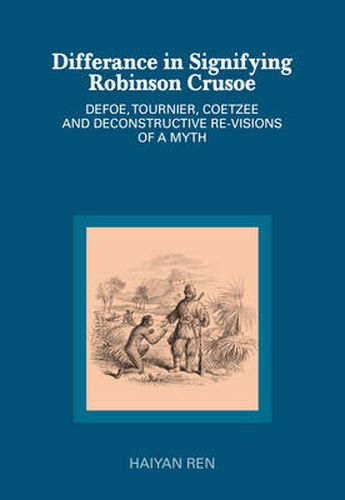Readings Newsletter
Become a Readings Member to make your shopping experience even easier.
Sign in or sign up for free!
You’re not far away from qualifying for FREE standard shipping within Australia
You’ve qualified for FREE standard shipping within Australia
The cart is loading…






Deconstructive rewritings are re-visions. This monograph engages Robinson Crusoe in tandem with two of its re-visions, Michel Tournier’s Friday and J. M. Coetzee’s Foe, from the perspective of the Enlightenment ideology. Basing the argument upon the assumption that Robinson Crusoe is a myth of the Enlightenment ideology representing the master narrative of the Enlightenment discourse, the book examines how the major ideological themes of the Enlightenment master narrative as manifested through the myth of Robinson Crusoe are rearticulated in Friday and Foe. It dismantles how these two re-visions, through deconstructive freeplay, question and more importantly deconstruct the basic premises and principles, or the concepts that enjoy the full presence of an absolute signified in the myth of Robinson Crusoe. Thus these re-visions not only transform the logocentric repressive structure in Defoe’s text into open-ended and dialogic discourses, they also partly constitute a chain of differance in signifying the myth of Robinson Crusoe. The author desires to generate large-scale understandings from small-scale insights through this research.
$9.00 standard shipping within Australia
FREE standard shipping within Australia for orders over $100.00
Express & International shipping calculated at checkout
Deconstructive rewritings are re-visions. This monograph engages Robinson Crusoe in tandem with two of its re-visions, Michel Tournier’s Friday and J. M. Coetzee’s Foe, from the perspective of the Enlightenment ideology. Basing the argument upon the assumption that Robinson Crusoe is a myth of the Enlightenment ideology representing the master narrative of the Enlightenment discourse, the book examines how the major ideological themes of the Enlightenment master narrative as manifested through the myth of Robinson Crusoe are rearticulated in Friday and Foe. It dismantles how these two re-visions, through deconstructive freeplay, question and more importantly deconstruct the basic premises and principles, or the concepts that enjoy the full presence of an absolute signified in the myth of Robinson Crusoe. Thus these re-visions not only transform the logocentric repressive structure in Defoe’s text into open-ended and dialogic discourses, they also partly constitute a chain of differance in signifying the myth of Robinson Crusoe. The author desires to generate large-scale understandings from small-scale insights through this research.